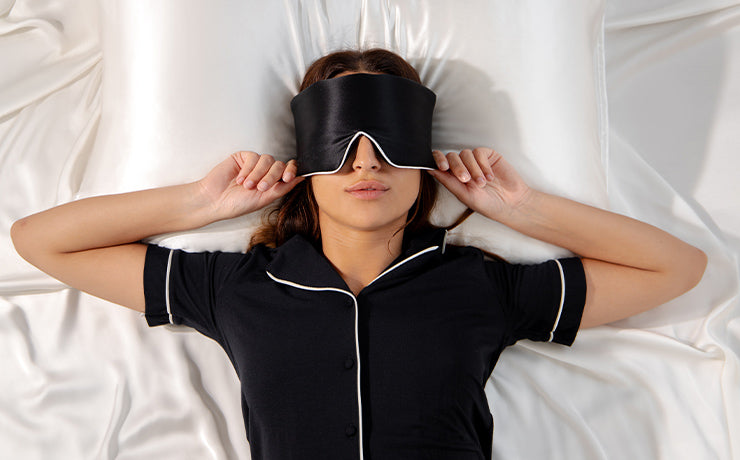How Cognitive Behavioural Therapy Can Help Sleep
If you find yourself restless, endlessly counting sheep to no avail, consider cognitive behavioural therapy (CBT) as a potential remedy for a more peaceful night's sleep. CBT works to shift your mindset and behaviours positively. It encourages the formation of beneficial habits that foster a healthier, more serene sleep routine. This approach is the most natural, drug-free method to ensure a good night's rest without needing to schedule a visit to the doctor. With successful application, you might bid farewell to insomnia permanently. Forget about passing the wee hours watching endless TV show reruns because your thoughts won't slow down. Numerous individuals have experienced the remarkable benefits of cognitive behavioural therapy, praising its ability to alleviate their sleep troubles effectively. Let's hope your journey into dreamland begins only after you've finished reading this post.
So, What Exactly Is Cognitive Behavioural Therapy?
Harvard Medical School's Health Publishing highlights that the core principle of cognitive behavioural therapy (CBT) is the recognition that our internal thoughts have as much impact on our suffering as external factors do. Even in the quietest, most serene environment, intrusive and loud thoughts can disrupt our sleep. These thoughts are not only exhausting but often irrational, creating a sense that the brain is unable to enter a state of rest. CBT is invaluable in this context because it encourages a shift towards positive thinking, moving away from the negative thoughts that can dominate our minds. By mastering better thinking patterns, you can soothe both mind and body, paving the way for a more relaxed state conducive to sleep.
How Does CBT Improve Sleep, You Ask?
Cognitive Behavioural Therapy (CBT) aims to refine your actions and boost positive sleep routines. Conveniently, each session lasts just about 30 minutes, easily fitting into a lunch break. During these sessions, you'll consult with a certified sleep expert, who will encourage the keeping of a sleep journal. This is particularly beneficial for those who've battled insomnia for years, often harboring incorrect beliefs and feelings about sleep. The therapist will engage in conversation to dispel any misconceptions, aiding in the dissolution of mental barriers. For instance, the fear that sleeping early leads to premature waking is a common concern. It's also a myth that eight hours of sleep are essential for feeling refreshed. CBT focuses on enhancing the body's relaxation response, rather than letting your mind be overrun by endless thoughts and false beliefs.
During your journey with Cognitive Behavioural Therapy (CBT), the therapist will delve deeply into your sleep history and current patterns, emphasizing the importance of a detailed sleep diary. This comprehensive approach aids in pinpointing the root causes of your sleep difficulties and formulating effective strategies for overcoming them. Transparency in these discussions is crucial for the therapy's success in addressing persistent sleep issues. CBT is essentially a form of training aimed at calming the mind and dispelling negative thoughts, necessitating both time and patience from you. The significance of sleep for health cannot be overstated, as rest is vital for cellular rejuvenation. By gradually replacing negative thoughts and feelings with positive ones, CBT facilitates a peaceful transition to sleep, allowing you to effortlessly disconnect from the stresses of daily life.
Is CBT Effective?
Many individuals grappling with sleep disturbances have acclaimed cognitive behavioural therapy (CBT) as revolutionary, attributing their newfound happiness and life changes to its efficacy. Envision the possibility of easing into relaxation whenever fatigue sets in, free from the burden of intrusive thoughts that dampen your spirits. While CBT might not be a universal remedy, its potential as a medication-free alternative makes it a compelling option for those seeking different solutions to their sleep problems.
Psychologists specializing in cognitive behavioural therapy (CBT) introduce patients to the concept of "Stimulus control," a technique encouraging individuals to seek rest only when genuinely tired, attuning to their body's natural signals. It's crucial to maintain patience, as results may not be immediate, but this approach importantly steers clear of medication reliance and the associated risk of addiction. As therapy progresses, patients might also consider integrating natural sleep aids like melatonin to support their journey towards better sleep.
Experiencing insomnia is a common issue, devoid of any stigma; it's a challenge that many face due to the pervasive nature of intrusive thoughts and emotions, often exacerbated with aging. Hyper-alertness varies from person to person, but CBT aims to uncover and address the underlying anxieties disrupting peaceful rest. Altering established habits in adulthood can be daunting, yet with diligent application of CBT's relaxation techniques, individuals can soon find themselves embracing a more rejuvenated, healthy, and optimistic state of being.






